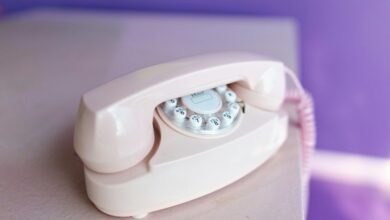390755809 User Behavior Following Missed Calls

User behavior following missed calls from the number 390755809 reveals intriguing patterns influenced by various factors. Caller identity plays a crucial role in determining response rates. Familiar callers prompt immediate callbacks, while unknown numbers often lead to hesitation or disregard. Psychological elements, such as social anxiety, further complicate decision-making. As communication preferences evolve, the implications of these behaviors warrant closer examination. What underlying trends drive these choices in today’s digital landscape?
Patterns of Follow-Up Actions After Missed Calls
How do individuals typically respond to missed calls?
Analysis reveals distinct response patterns. Many prioritize returning calls promptly, reflecting a sense of obligation or urgency.
Others may delay their response, assessing factors such as caller significance or context. Some individuals choose to ignore the missed call altogether, indicating personal autonomy.
These varied actions highlight the complex interplay between social norms and personal choice in communication.
The Role of Caller Identity in User Response
Caller identity significantly influences how individuals respond to missed calls. High levels of caller recognition, particularly with familiar contacts, often prompt immediate follow-up actions, while unknown or less familiar callers may elicit delayed responses or avoidance.
This relationship underscores the importance of contact familiarity, as it shapes user behavior, determining whether the missed call is prioritized or disregarded in the context of personal communication.
Psychological Factors Influencing Communication Decisions
Although various factors influence communication decisions, psychological elements play a pivotal role in shaping how individuals respond to missed calls.
Fear of rejection may deter users from returning calls, while social anxiety can exacerbate avoidance behaviors.
Additionally, urgency perception affects the immediate response, and adherence to communication etiquette further complicates decision-making processes, ultimately guiding their choices in interpersonal interactions.
Trends in Modern Communication Dynamics
In what ways have technological advancements reshaped communication dynamics in recent years?
The emergence of instant messaging and social media platforms has altered communication preferences, fostering immediate emotional responses. Users now prioritize brevity and visual engagement over traditional methods, leading to a shift in interpersonal interactions.
This evolution reflects a desire for freedom in communication, enabling more authentic connections amidst the complexities of modern life.
Conclusion
In conclusion, user behavior following missed calls from the number 390755809 is significantly influenced by the identity of the caller and underlying psychological factors. For instance, a case study involving a young professional who received a missed call from a familiar colleague led to an immediate callback, driven by workplace obligation. In contrast, another individual receiving a call from an unknown number hesitated, showcasing the impact of social anxiety and evolving communication preferences on follow-up actions.




